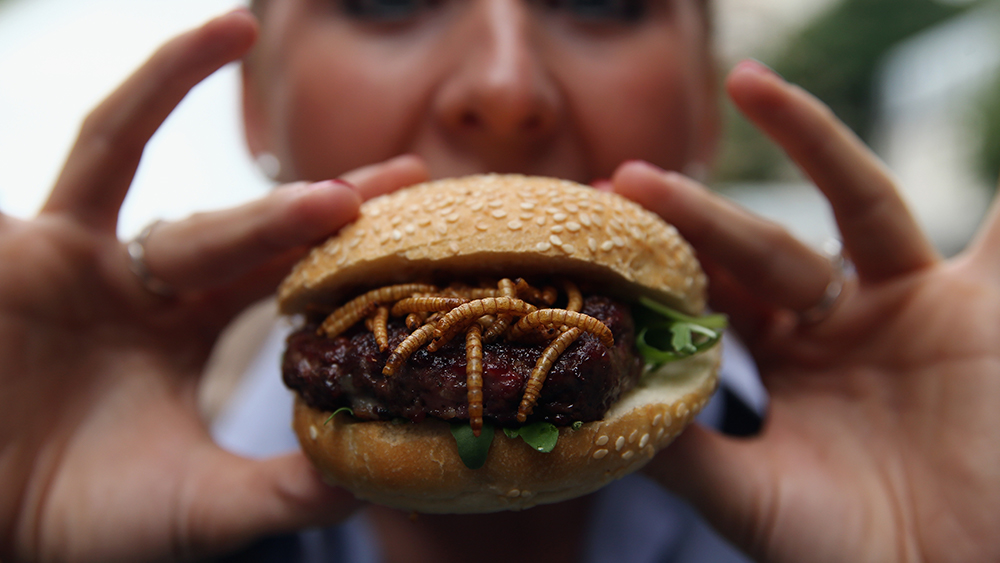Expert warns: Zombie infection in “The Last of Us” not too far-fetched
01/25/2023 / By Belle Carter

An expert has warned that the idea of a fungus infecting humans and turning them into zombies, as seen in the franchise “The Last of Us,” is not too far-fetched.
Originally released in 2013 as a console game for the PlayStation 3 and 4, it was later adopted for television by HBO. The series is set 20 years after the destruction of modern civilization. Amid the background of a fungus turning infected humans into zombies spreading worldwide, hardened survivor Joel is tasked to smuggle 14-year-old Ellie out of an oppressive quarantine zone.
TV show creators Neil Druckmann and Craig Mazin said the pathogen is based on the Cordyceps fungi, mirroring that of the game series. The fungi infects carpenter ants, forcing them to walk to the top of a plant and clamp their jaws there until they die. Cordyceps then sprout antenna-like stalks on the insect’s body that then fire spores on the ground below – infecting more insects.
“Cordyceps is a fascinating concept, and it’s absolutely real. We wanted to push that a little further. We wanted to give us much reality as we could because the more real that is, the more we connect to the characters that are in that space playing around,” they said.
Dr. Henrik de Fine Licht of the University of Copenhagen (KU), who has been watching the TV series, remarked: “It makes the not too far-fetched idea of a fungal disease ‘jumping’ from one species, insects in this case, and on to humans. Many, if not most, new diseases likely come from pathogenic organisms shifting from other species, so the idea is compelling.”
He remarked that while it could be possible for a disease to jump to humans from non-human hosts, it would likely take millions of years of evolution.
“Their ability to behaviorally manipulate their host has evolved and been fine-tuned during millions of years’ co-evolution with their respective insect hosts, so the chance of these fungi suddenly being able to not only infect something as different from an insect as a human, and then also maintaining the ability to manipulate the behavior is literally non-existent.”
Some fungi infect their hosts, turn them into zombies
He continued that some fungi that manipulate host behavior are very host-specific, citing the example of Entomophthora muscae that infects female houseflies. A 2022 study by de Fine Licht found that E. muscae has a higher chance of attracting male flies the longer the female host is dead. The pathogenic fungus uses its victim’s corpse to attract males to mate with it.
E. muscae penetrates the housefly’s outer skin, growing its way through the body and infecting its nervous system. After about a week of digesting the host’s internal organs, the pathogen forces the fly to ascend to a high point and spread out its wings before it dies. Next, the fungi grow an array of microstalks on the corpse, which are actually pressurized cannons of liquid with a spore that can be ejected outwards.
The host also releases a a chemical signature that acts as pheromones to lure unsuspecting males to come and mate with the infected female corpse. The males trigger the cannons and end up coated in a spray of infectious spores which will also eventually turn it into a zombie housefly. This ensures that the fungal spores are dispersed as widely as possible, restarting the gruesome process. (Related: Newly discovered wasp species can turn its prey into zombies.)
Back in 2020, scientists from KU and the Natural History Museum of Denmark discovered two other parasitic fungi that target flies: Strongwellsea acerosa and S. tigrinae.
The fungi consume the flies’ genitals, fat reserves, reproductive organs, and finally its muscles while shooting out thousands of spores onto other hosts via a hole in their abdomen. After a few days, infected hosts lie on their backs, spasm for a few hours, and then die.
Scientists think the fungi could be producing substances that “dope” their hosts, meaning they can stay fresh enough to live for days after infection – only collapsing once there is nothing left in their abdomens but the fungus.
Watch this scene from “The Last of Us” where an epidemiologist speaks about pathogenic fungi.
This video is from the expectnomercy channel on Brighteon.com.
More related stories:
Florida city broadcasts actual ZOMBIE alert; warns residents of “extreme zombie activity.”
Sources include:
Submit a correction >>
Tagged Under:
chaos, Collapse, cordyceps, entomophthora muscae, fungus, infections, infectious diseases, outbreak, pathogenic fungi, plague, Strongwellsea acerosa, Strongwellsea tigrinae, superbugs, The Last of Us, zombie, Zombie Apocalypse
This article may contain statements that reflect the opinion of the author
RECENT NEWS & ARTICLES
COPYRIGHT © 2017 ENVIRON NEWS



















